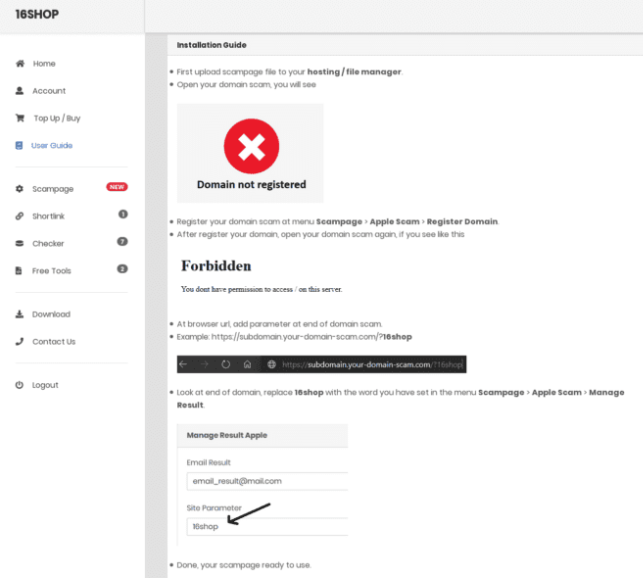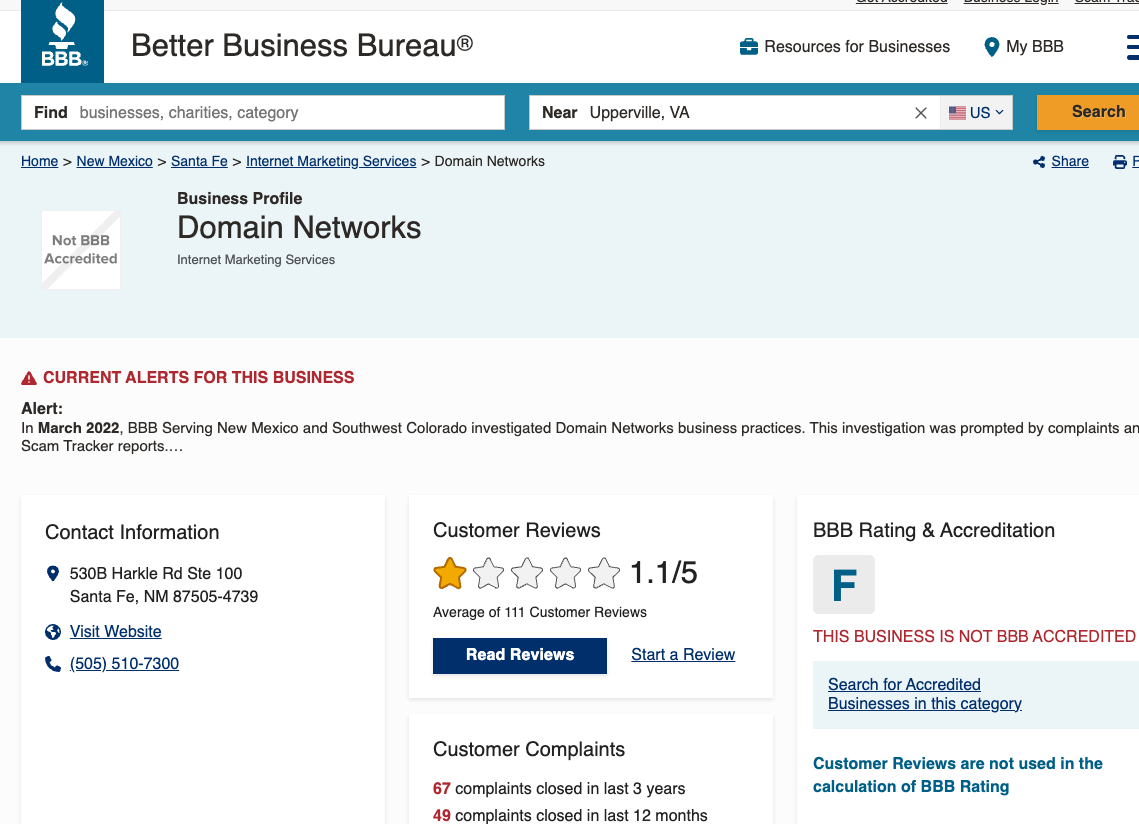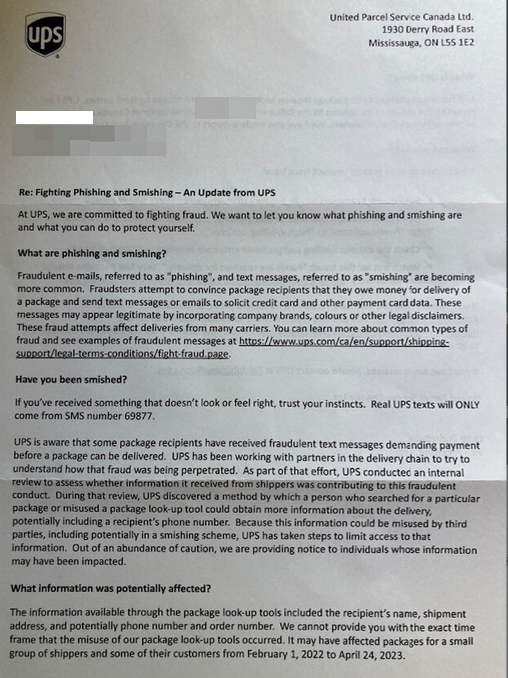
It's another week of travels, this time from our "second home", Oslo. That's off the back of 4 days in the Netherlands and starting tomorrow, another 4 in Prague. But today, the 17th of September, is extra special 😊
1 year today ❤️ pic.twitter.com/vsRChdDshn
— Troy Hunt (@troyhunt) September 17, 2023
We'll be going out and celebrating accordingly as soon as I get this post published so I'll be brief: enjoy this week's video!


I'm super late pushing out this week's video, I mean to the point where I now have a couple of days before doing the next one. Travel from the opposite side of the world is the obvious excuse, then frankly, just wanting to hang out with friends and relax. And now, I somehow find myself publishing this from the most mind-bending set of circumstances:
Heading to 31C. Cold beer. Warm pool. How is this in England?! 🤯 pic.twitter.com/tQSbHaoLhG
— Troy Hunt (@troyhunt) September 6, 2023
On that note, straight into the video, links below and I'll do it all again in a couple of days from Spain:


Domain names ending in “.US” — the top-level domain for the United States — are among the most prevalent in phishing scams, new research shows. This is noteworthy because .US is overseen by the U.S. government, which is frequently the target of phishing domains ending in .US. Also, .US domains are only supposed to be available to U.S. citizens and to those who can demonstrate that they have a physical presence in the United States.
.US is the “country code top-level domain” or ccTLD of the United States. Most countries have their own ccTLDs: .MX for Mexico, for example, or .CA for Canada. But few other major countries in the world have anywhere near as many phishing domains each year as .US.
That’s according to The Interisle Consulting Group, which gathers phishing data from multiple industry sources and publishes an annual report on the latest trends. Interisle’s newest study examined six million phishing reports between May 1, 2022 and April 30, 2023, and found 30,000 .US phishing domains.
.US is overseen by the National Telecommunications and Information Administration (NTIA), an executive branch agency of the U.S. Department of Commerce. However, NTIA currently contracts out the management of the .US domain to GoDaddy, by far the world’s largest domain registrar.
Under NTIA regulations, the administrator of the .US registry must take certain steps to verify that their customers actually reside in the United States, or own organizations based in the U.S. But Interisle found that whatever GoDaddy was doing to manage that vetting process wasn’t working.
“The .US ‘nexus’ requirement theoretically limits registrations to parties with a national connection, but .US had very high numbers of phishing domains,” Interisle wrote. “This indicates a possible problem with the administration or application of the nexus requirements.”
Dean Marks is emeritus executive director for a group called the Coalition for Online Accountability, which has been critical of the NTIA’s stewardship of .US. Marks says virtually all European Union member state ccTLDs that enforce nexus restrictions also have massively lower levels of abuse due to their policies and oversight.
“Even very large ccTLDs, like .de for Germany — which has a far larger market share of domain name registrations than .US — have very low levels of abuse, including phishing and malware,” Marks told KrebsOnSecurity. “In my view, this situation with .US should not be acceptable to the U.S. government overall, nor to the US public.”
Marks said there are very few phishing domains ever registered in other ccTLDs that also restrict registrations to their citizens, such as .HU (Hungary), .NZ (New Zealand), and .FI (Finland), where a connection to the country, a proof of identity, or evidence of incorporation are required.
“Or .LK (Sri Lanka), where the acceptable use policy includes a ‘lock and suspend’ if domains are reported for suspicious activity,” Marks said. “These ccTLDs make a strong case for validating domain registrants in the interest of public safety.”
Sadly, .US has been a cesspool of phishing activity for many years. As far back as 2018, Interisle found .US domains were the worst in the world for spam, botnet (attack infrastructure for DDOS etc.) and illicit or harmful content. Back then, .US was being operated by a different contractor.
In response to questions from KrebsOnSecurity, GoDaddy said all .US registrants must certify that they meet the NTIA’s nexus requirements. But this appears to be little more than an affirmative response that is already pre-selected for all new registrants.

Attempting to register a .US domain through GoDaddy, for example, leads to a U.S. Registration Information page that auto-populates the nexus attestation field with the response, “I am a citizen of the US.” Other options include, “I am a permanent resident of the US,” and “My primary domicile is in the US.” It currently costs just $4.99 to obtain a .US domain through GoDaddy.
GoDaddy said it also conducts a scan of selected registration request information, and conducts “spot checks” on registrant information.
“We conduct regular reviews, per policy, of registration data within the Registry database to determine Nexus compliance with ongoing communications to registrars and registrants,” the company said in a written statement.
GoDaddy says it “is committed to supporting a safer online environment and proactively addressing this issue by assessing it against our own anti-abuse mitigation system.”
“We stand against DNS abuse in any form and maintain multiple systems and protocols to protect all the TLDs we operate,” the statement continued. “We will continue to work with registrars, cybersecurity firms and other stakeholders to make progress with this complex challenge.”
Interisle found significant numbers of .US domains were registered to attack some of the United States’ most prominent companies, including Bank of America, Amazon, Apple, AT&T, Citi, Comcast, Microsoft, Meta, and Target.
“Ironically, at least 109 of the .US domains in our data were used to attack the United States government, specifically the United States Postal Service and its customers,” Interisle wrote. “.US domains were also used to attack foreign government operations: six .US domains were used to attack Australian government services, six attacked Great’s Britain’s Royal Mail, one attacked Canada Post, and one attacked the Denmark Tax Authority.”
The NTIA recently published a proposal that would allow GoDaddy to redact registrant data from WHOIS registration records. The current charter for .US specifies that all .US registration records be public.
Interisle argues that without more stringent efforts to verify a United States nexus for new .US domain registrants, the NTIA’s proposal will make it even more difficult to identify phishers and verify registrants’ identities and nexus qualifications.
In a written statement, the NTIA said DNS abuse is a priority issue for the agency, and that NTIA supports “evidence-based policymaking.”
“We look forward to reviewing the report and will engage with our contractor for the .US domain on steps that we can take not only to address phishing, but the other forms of DNS abuse as well,” the statement reads.
Interisle sources its phishing data from several places, including the Anti-Phishing Working Group (APWG), OpenPhish, PhishTank, and Spamhaus. For more phishing facts, see Interisle’s 2023 Phishing Landscape report (PDF).’
Update, Sept. 5, 1:44 p.m. ET: Updated story with statement provided today by the NTIA.

Somehow in this week's video, I forgot to talk about the single blog post I wrote this week! So here's the elevator pitch: Cloudflare's Turnstile is a bot-killing machine I've had enormous success with for the "API" (quoted because it's not meant to be consumed by others), behind the front page of HIBP. It's unintrusive, is super easy to implement and kills bots dead. There you go, how's that for a last minute pitch? 😊


This week hasd been manic! Non-stop tickets related to the new HIBP domain subscription service, scrambling to support invoicing and resellers, struggling our way through some odd Stripe things and so on and so forth. It's all good stuff and there have been very few issues of note (and all of those have merely been people getting to grips with the new model), so all in all, it's happy days 😊

You’ve probably never heard of “16Shop,” but there’s a good chance someone using it has tried to phish you.

A 16Shop phishing page spoofing Apple and targeting Japanese users. Image: Akamai.com.
The international police organization INTERPOL said last week it had shuttered the notorious 16Shop, a popular phishing-as-a-service platform launched in 2017 that made it simple for even complete novices to conduct complex and convincing phishing scams. INTERPOL said authorities in Indonesia arrested the 21-year-old proprietor and one of his alleged facilitators, and that a third suspect was apprehended in Japan.
The INTERPOL statement says the platform sold hacking tools to compromise more than 70,000 users in 43 countries. Given how long 16Shop has been around and how many paying customers it enjoyed over the years, that number is almost certainly highly conservative.
Also, the sale of “hacking tools” doesn’t quite capture what 16Shop was all about: It was a fully automated phishing platform that gave its thousands of customers a series of brand-specific phishing kits to use, and provided the domain names needed to host the phishing pages and receive any stolen credentials.
Security experts investigating 16Shop found the service used an application programming interface (API) to manage its users, an innovation that allowed its proprietors to shut off access to customers who failed to pay a monthly fee, or for those attempting to copy or pirate the phishing kit.
16Shop also localized phishing pages in multiple languages, and the service would display relevant phishing content depending on the victim’s geolocation.

Various 16Shop lures for Apple users in different languages. Image: Akamai.
For example, in 2019 McAfee found that for targets in Japan, the 16Shop kit would also collect Web ID and Card Password, while US victims will be asked for their Social Security Number.
“Depending on location, 16Shop will also collect ID numbers (including Civil ID, National ID, and Citizen ID), passport numbers, social insurance numbers, sort codes, and credit limits,” McAfee wrote.
In addition, 16Shop employed various tricks to help its users’ phishing pages stay off the radar of security firms, including a local “blacklist” of Internet addresses tied to security companies, and a feature that allowed users to block entire Internet address ranges from accessing phishing pages.
The INTERPOL announcement does not name any of the suspects arrested in connection with the 16Shop investigation. However, a number of security firms — including Akamai, McAfee and ZeroFox, previously connected the service to a young Indonesian man named Riswanda Noor Saputra, who sold 16Shop under the hacker handle “Devilscream.”
According to the Indonesian security blog Cyberthreat.id, Saputra admitted being the administrator of 16Shop, but told the publication he handed the project off to others by early 2020.

16Shop documentation instructing operators on how to deploy the kit. Image: ZeroFox.
Nevertheless, Cyberthreat reported that Devilscream was arrested by Indonesian police in late 2021 as part of a collaboration between INTERPOL and the U.S. Federal Bureau of Investigation (FBI). Still, researchers who tracked 16Shop since its inception say Devilscream was not the original proprietor of the phishing platform, and he may not be the last.
It is not uncommon for cybercriminals to accidentally infect their own machines with password-stealing malware, and that is exactly what seems to have happened with one of the more recent administrators of 16Shop.
Constella Intelligence, a data breach and threat actor research platform, now allows users to cross-reference popular cybercrime websites and denizens of these forums with inadvertent malware infections by information-stealing trojans. A search in Constella on 16Shop’s domain name shows that in mid-2022, a key administrator of the phishing service infected their Microsoft Windows desktop computer with the Redline information stealer trojan — apparently by downloading a cracked (and secretly backdoored) copy of Adobe Photoshop.
Redline infections steal gobs of data from the victim machine, including a list of recent downloads, stored passwords and authentication cookies, as well as browser bookmarks and auto-fill data. Those records indicate the 16Shop admin used the nicknames “Rudi” and “Rizki/Rizky,” and maintained several Facebook profiles under these monikers.
It appears this user’s full name (or at least part of it) is Rizky Mauluna Sidik, and they are from Bandung in West Java, Indonesia. One of this user’s Facebook pages says Rizky is the chief executive officer and founder of an entity called BandungXploiter, whose Facebook page indicates it is a group focused mainly on hacking and defacing websites.
A LinkedIn profile for Rizky says he is a backend Web developer in Bandung who earned a bachelor’s degree in information technology in 2020. Mr. Rizky did not respond to requests for comment.


So about those domain searches... 😊 The new subscription model launched this week and as many of you know from your own past experiences, pushing major new code live is always a bit of a nail-biting exercise. It went out silently on Sunday morning, nothing major broke so I published the blog post Monday afternoon then emailed all the existing API key subscribers Tuesday morning and now here we are!
One thing I talk a bit about in the video today are the 2 new APIs someone reached out and requested. This was an awesome idea and I can't wait to show you what they've built with them. I expect I'll blog that this coming week and probably quietly slip out the documentation on the 2 new endpoints in advance. Stay tuned for that one, what he's done with this looks so cool 😎


Somewhere in the next few hours from publishing this post, I'll finally push the HIBP domain search changes live. I've been speaking about it a lot in these videos over recent weeks so many of you have already know what it entails, but it's the tip of the iceberg you've seen publicly. This is the culmination of 7 months of work to get this model right with a ridiculous amount of background effort having gone into it. Case in point: read my pain from last night about converting thousands of words of lawyer speak T&Cs from Microsoft Word to HTML. As if preparing these wasn't painful enough, trying to make them simply play nice on a web page has been a nightmare! (I settled for dumping stuff in a <pre> tag for now and will invest the time in doing it right later on.)
I hope you enjoy this week's video, I'll talk much more about the domain search bits in the next video, hopefully following a successful launch!


IoT, breaches and largely business as usual so I'll skip that in the intro to this post and jump straight to the end: the impending HIBP domain search changes. As I say in the vid, I really value people's feedback on this so if nothing else, please skip through to 48:15, listen to that section and let me know what you think. By the time I do next week's vid my hope is that all the coding work is done and I'm a couple of days out from shipping it, so now is your time to provide input if you think there's something I'm missing that really should be in there 🙂

The Russian government today handed down a treason conviction and 14-year prison sentence on Iyla Sachkov, the former founder and CEO of one of Russia’s largest cybersecurity firms. Sachkov, 37, has been detained for nearly two years under charges that the Kremlin has kept classified and hidden from public view, and he joins a growing roster of former Russian cybercrime fighters who are now serving hard time for farcical treason convictions.

Ilya Sachkov. Image: Group-IB.com.
In 2003, Sachkov founded Group-IB, a cybersecurity and digital forensics company that quickly earned a reputation for exposing and disrupting large-scale cybercrime operations, including quite a few that were based in Russia and stealing from Russian companies and citizens.
In September 2021, the Kremlin issued treason charges against Sachkov, although it has refused to disclose any details about the allegations. Sachkov pleaded not guilty. After a three-week “trial” that was closed to the public, Sachkov was convicted of treason and sentenced to 14 years in prison. Prosecutors had asked for 18 years.
Group-IB relocated its headquarters to Singapore several years ago, although it did not fully exit the Russian market until April 2023. In a statement, Group-IB said that during their founder’s detainment, he was denied the right to communicate — no calls, no letters — with the outside world for the first few months, and was deprived of any visits from family and friends.
“Ultimately, Ilya has been denied a chance for an impartial trial,” reads a blog post on the company’s site. “All the materials of the case are kept classified, and all hearings were held in complete secrecy with no public scrutiny. As a result, we might never know the pretext for his conviction.”
Prior to his arrest in 2021, Sachkov publicly chastised the Kremlin for turning a blind eye to the epidemic of ransomware attacks coming from Russia. In a speech covered by the Financial Times in 2021, Sachkov railed against the likes of Russian hacker Maksim Yakubets, the accused head of a hacking group called Evil Corp. that U.S. officials say has stolen hundreds of millions of dollars over the past decade.
“Yakubets has been spotted driving around Moscow in a fluorescent camouflage Lamborghini, with a custom licence plate that reads ‘THIEF,'” FT’s Max Seddon wrote. “He also ‘provides direct assistance to the Russian government’s malicious cyber efforts,’ according to US Treasury sanctions against him.”
In December 2021, Bloomberg reported that Sachkov was alleged to have given the United States information about the Russian “Fancy Bear” operation that sought to influence the 2016 U.S. election. Fancy Bear is one of several names (e.g., APT28) for an advanced Russian cyber espionage group that has been linked to the Russian military intelligence agency GRU.
In 2019, a Moscow court meted out a 22-year prison sentence for alleged treason charges against Sergei Mikhailov, formerly deputy chief of Russia’s top anti-cybercrime unit. The court also levied a 14-year sentence against Ruslan Stoyanov, a senior employee at Kaspersky Lab. Both men maintained their innocence throughout the trial, and the supposed reason for the treason charges has never been disclosed.
Following their dramatic arrests in 2016, some media outlets reported that the men were suspected of having tipped off American intelligence officials about those responsible for Russian hacking activities tied to the 2016 U.S. presidential election.
That’s because two others arrested for treason at the same time — Mikhailov subordinates Georgi Fomchenkov and Dmitry Dokuchaev — were reported by Russian media to have helped the FBI investigate Russian servers linked to the 2016 hacking of the Democratic National Committee.

Sad news to wake up to today. Kevin was a friend and as I say in this week's video, probably the most well-known identity in infosec ever, and for good reason. He made a difference, and I have fun memories with him 😊
Felt really sad waking up and seeing “RIP Kevin” in my timeline. I doubt there is a more well known name in our industry but if he’s unfamiliar to you (or you haven’t read this book), go and grab “Ghost in the Wires” which is an exceptional read.
— Troy Hunt (@troyhunt) July 20, 2023
Kevin started regularly coming… pic.twitter.com/w1UMm7mGa8
In other news, I share a lot more on the upcoming domain search changes in this week's video and I've gotta say, I'm feeling pretty good about them. I spent most of the day after recording this writing code and drafting the blog post and I'm pretty damn happy with each right now. I'll keep sharing more info via these updates to the extent that by the time everything launches in a couple of weeks, you'll know it all anyway if you're paying attention here 😎


Today was a bit back-to-back having just wrapped up the British Airways Magecart attack webinar with Scott. That was actually a great session with loads of engagement and it's been recorded to so look out for that one soon if you missed it. Anyway, I filled this week's update with a bunch of random things from the week. I especially enjoyed discussing the HIBP domain search progress and as I say in the video, talking through it with other people really helps crystalise things so I think I'll keep doing that as the dev work continues. Stay tuned for more on that next week, see you then 😊


Alrighty, "The Social Media". Without adding too much here as I think it's adequately covered in the video, since last week we've had another change at Twitter that has gotten some people cranky (rate limits) and another social media platform to jump onto (Threads). I do wonder how impactful the 1k tweet view limit per day is for most people (I have no idea how many I usually see, I just know I've never hit the limit yet), and as I say in the video, I find it increasingly hard to tell when community outrage is evidence-based versus "because Elon". Strange times, for now I'll just keep a foot in each camp and then who knows how the whole thing will play out in the future.

If you’ve ever owned a domain name, the chances are good that at some point you’ve received a snail mail letter which appears to be a bill for a domain or website-related services. In reality, these misleading missives try to trick people into paying for useless services they never ordered, don’t need, and probably will never receive. Here’s a look at the most recent incarnation of this scam — DomainNetworks — and some clues about who may be behind it.
The DomainNetworks mailer may reference a domain that is or was at one point registered to your name and address. Although the letter includes the words “marketing services” in the upper right corner, the rest of the missive is deceptively designed to look like a bill for services already rendered.

DomainNetworks claims that listing your domain with their promotion services will result in increased traffic to your site. This is a dubious claim for a company that appears to be a complete fabrication, as we’ll see in a moment. But happily, the proprietors of this enterprise were not so difficult to track down.
The website Domainnetworks[.]com says it is a business with a post office box in Hendersonville, N.C., and another address in Santa Fe, N.M. There are a few random, non-technology businesses tied to the phone number listed for the Hendersonville address, and the New Mexico address was used by several no-name web hosting companies.
However, there is little connected to these addresses and phone numbers that get us any closer to finding out who’s running Domainnetworks[.]com. And neither entity appears to be an active, official company in their supposed state of residence, at least according to each state’s Secretary of State database.
The Better Business Bureau listing for DomainNetworks gives it an “F” rating, and includes more than 100 reviews by people angry at receiving one of these scams via snail mail. Helpfully, the BBB says DomainNetworks previously operated under a different name: US Domain Authority LLC.

DomainNetworks has an “F” reputation with the Better Business Bureau.
Copies of snail mail scam letters from US Domain Authority posted online show that this entity used the domain usdomainauthority[.]com, registered in May 2022. The Usdomainauthority mailer also featured a Henderson, NC address, albeit at a different post office box.
Usdomainauthority[.]com is no longer online, and the site seems to have blocked its pages from being indexed by the Wayback Machine at archive.org. But searching on a long snippet of text from DomainNetworks[.]com about refund requests shows that this text was found on just one other active website, according to publicwww.com, a service that indexes the HTML code of existing websites and makes it searchable.

A deceptive snail mail solicitation from DomainNetwork’s previous iteration — US Domain Authority. Image: Joerussori.com
That other website is a domain registered in January 2023 called thedomainsvault[.]com, and its registration details are likewise hidden behind privacy services. Thedomainsvault’s “Frequently Asked Questions” page is quite similar to the one on the DomainNetworks website; both begin with the question of why the company is sending a mailer that looks like a bill for domain services.
Thedomainsvault[.]com includes no useful information about the entity or people who operate it; clicking the “Contact-us” link on the site brings up a page with placeholder Lorem Ipsum text, a contact form, and a phone number of 123456789.
However, searching passive DNS records at DomainTools.com for thedomainsvault[.]com shows that at some point whoever owns the domain instructed incoming email to be sent to ubsagency@gmail.com.
The first result that currently pops up when searching for “ubsagency” in Google is ubsagency[.]com, which says it belongs to a Las Vegas-based Search Engine Optimization (SEO) and digital marketing concern generically named both United Business Service and United Business Services. UBSagency’s website is hosted at the same Ann Arbor, Mich. based hosting firm (A2 Hosting Inc) as thedomainsvault[.]com.
UBSagency’s LinkedIn page says the company has offices in Vegas, Half Moon Bay, Calif., and Renton, Wash. But once again, none of the addresses listed for these offices reveal any obvious clues about who runs UBSagency. And once again, none of these entities appear to exist as official businesses in their claimed state of residence.
Searching on ubsagency@gmail.com in Constella Intelligence shows the address was used sometime before February 2019 to create an account under the name “Sammy\Sam_Alon” at the interior decorating site Houzz.com. In January 2019, Houzz acknowledged that a data breach exposed account information on an undisclosed number of customers, including user IDs, one-way encrypted passwords, IP addresses, city and ZIP codes, as well as Facebook information.
Sammy\Sam_Alon registered at Houzz using an Internet address in Huntsville, Ala. (68.35.149.206). Constella says this address was associated with the email tropicglobal@gmail.com, which also is tied to several other “Sammy” accounts at different stores online.
Constella also says a highly unique password re-used by tropicglobal@gmail.com across numerous sites was used in connection with just a few other email accounts, including shenhavgroup@gmail.com, and distributorinvoice@mail.com.
The shenhavgroup@gmail.com address was used to register a Twitter account for a Sam Orit Alon in 2013, whose account says they are affiliated with the Shenhav Group. According to DomainTools, shenhavgroup@gmail.com was responsible for registering roughly two dozen domains, including the now-defunct unitedbusinessservice[.]com.
Constella further finds that the address distributorinvoice@mail.com was used to register an account at whmcs.com, a web hosting platform that suffered a breach of its user database several years back. The name on the WHMCS account was Shmuel Orit Alon, from Kidron, Israel.
UBSagency also has a Facebook page, or maybe “had” is the operative word because someone appears to have defaced it. Loading the Facebook page for UBSagency shows several of the images have been overlaid or replaced with a message from someone who is really disappointed with Sam Alon.
“Sam Alon is a LIAR, THIEF, COWARD AND HAS A VERY SMALL D*CK,” reads one of the messages:

The current Facebook profile page for UBSagency includes a logo that is similar to the DomainNetworks logo.
The logo in the UBSagency profile photo includes a graphic of what appears to be a magnifying glass with a line that zig-zags through bullet points inside and outside the circle, a unique pattern that is remarkably similar to the logo for DomainNetworks:

The logos for DomainNetworks (left) and UBSagency.
Constella also found that the same Huntsville IP address used by Sam Alon at Houzz was associated with yet another Houzz account, this one for someone named “Eliran.”
The UBSagency Facebook page features several messages from an Eliran “Dani” Benz, who is referred to by commenters as an employee or partner with UBSagency. The last check-in on Benz’s profile is from a beach at Rishon Letziyon in Israel earlier this year.
Neither Mr. Alon nor Mr. Benz responded to multiple requests for comment.
It may be difficult to believe that anyone would pay an invoice for a domain name or SEO service they never ordered. However, there is plenty of evidence that these phony bills often get processed by administrative personnel at organizations that end up paying the requested amount because they assume it was owed for some services already provided.
In 2018, KrebsOnSecurity published How Internet Savvy are Your Leaders?, which examined public records to show that dozens of cities, towns, school districts and even political campaigns across the United States got snookered into paying these scam domain invoices from a similar scam company called WebListings Inc.
In 2020, KrebsOnSecurity featured a deep dive into who was likely behind the WebListings scam, which had been sending out these snail mail scam letters for over a decade. That investigation revealed the scam’s connection to a multi-level marketing operation run out of the U.K., and to two brothers living in Scotland.

I'm in Thailand! It's spectacular here, and even more so since recording this video and getting out of Bangkok and into the sorts of natural beauty you see in all the videos. Speaking of which, rather than writing more here (whilst metres away from the most amazing scenery), I'm going to push the publish button on this week's video and go enjoy it. Seeya! 😊

Nikita Kislitsin, formerly the head of network security for one of Russia’s top cybersecurity firms, was arrested last week in Kazakhstan in response to 10-year-old hacking charges from the U.S. Department of Justice. Experts say Kislitsin’s prosecution could soon put the Kazakhstan government in a sticky diplomatic position, as the Kremlin is already signaling that it intends to block his extradition to the United States.

Nikita Kislitsin, at a security conference in Russia.
Kislitsin is accused of hacking into the now-defunct social networking site Formspring in 2012, and conspiring with another Russian man convicted of stealing tens of millions of usernames and passwords from LinkedIn and Dropbox that same year.
In March 2020, the DOJ unsealed two criminal hacking indictments against Kislitsin, who was then head of security at Group-IB, a cybersecurity company that was founded in Russia in 2003 and operated there for more than a decade before relocating to Singapore.
Prosecutors in Northern California indicted Kislitsin in 2014 for his alleged role in stealing account data from Formspring. Kislitsin also was indicted in Nevada in 2013, but the Nevada indictment does not name his alleged victim(s) in that case.
However, documents unsealed in the California case indicate Kislitsin allegedly conspired with Yevgeniy Nikulin, a Russian man convicted in 2020 of stealing 117 million usernames and passwords from Dropbox, Formspring and LinkedIn in 2012. Nikulin is currently serving a seven-year sentence in the U.S. prison system.
As first reported by Cyberscoop in 2020, a trial brief in the California investigation identified Nikulin, Kislitsin and two alleged cybercriminals — Oleg Tolstikh and Oleksandr Vitalyevich Ieremenko — as being present during a 2012 meeting at a Moscow hotel, where participants allegedly discussed starting an internet café business.
A 2010 indictment out of New Jersey accuses Ieremenko and six others with siphoning nonpublic information from the U.S. Securities & Exchange Commission (SEC) and public relations firms, and making $30 million in illegal stock trades based on the proprietary information they stole.
[The U.S. Secret Service has an outstanding $1 million reward for information leading to the arrest of Ieremenko (Александр Витальевич Еременко), who allegedly went by the hacker handles “Zl0m” and “Lamarez.”]
Kislitsin was hired by Group-IB in January 2013, nearly six months after the Formspring hack. Group-IB has since moved its headquarters to Singapore, and in April 2023 the company announced it had fully exited the Russian market.
In a statement provided to KrebsOnSecurity, Group-IB said Mr. Kislitsin is no longer an employee, and that he now works for a Russian organization called FACCT, which stands for “Fight Against Cybercrime Technologies.”
“Dmitry Volkov, co-founder and CEO, sold his stake in Group-IB’s Russia-based business to the company’s local management,” the statement reads. “The stand-alone business in Russia has been operating under the new brand FACCT ever since and will continue to operate as a separate company with no connection to Group-IB.”
FACCT says on its website that it is a “Russian developer of technologies for combating cybercrime,” and that it works with clients to fight targeted attacks, data leaks, fraud, phishing and brand abuse. In a statement published online, FACCT said Kislitsin is responsible for developing its network security business, and that he remains under temporary detention in Kazakhstan “to study the basis for extradition arrest at the request of the United States.”
“According to the information we have, the claims against Kislitsin are not related to his work at FACCT, but are related to a case more than 10 years ago when Nikita worked as a journalist and independent researcher,” FACCT wrote.
From 2006 to 2012, Kislitsin was editor-in-chief of “Hacker,” a popular Russian-language monthly magazine that includes articles on information and network security, programming, and frequently features interviews with and articles penned by notable or wanted Russian hackers.
“We are convinced that there are no legal grounds for detention on the territory of Kazakhstan,” the FACCT statement continued. “The company has hired lawyers who have been providing Nikita with all the necessary assistance since last week, and we have also sent an appeal to the Consulate General of the Russian Federation in Kazakhstan to assist in protecting our employee.”
FACCT indicated that the Kremlin has already intervened in the case, and the Russian government claims Kislitsin is wanted on criminal charges in Russia and must instead be repatriated to his homeland.
“The FACCT emphasizes that the announcement of Nikita Kislitsin on the wanted list in the territory of the Russian Federation became known only today, June 28, 6 days after the arrest in Kazakhstan,” FACCT wrote. “The company is monitoring developments.”
The Kremlin followed a similar playbook in the case of Aleksei Burkov, a cybercriminal who long operated two of Russia’s most exclusive underground hacking forums. Burkov was arrested in 2015 by Israeli authorities, and the Russian government fought Burkov’s extradition to the U.S. for four years — even arresting and jailing an Israeli woman on phony drug charges to force a prisoner swap.
That effort ultimately failed: Burkov was sent to America, pleaded guilty, and was sentenced to nine years in prison.

Alexei Burkov, seated second from right, attends a hearing in Jerusalem in 2015. Image: Andrei Shirokov / Tass via Getty Images.
Arkady Bukh is a U.S. attorney who has represented dozens of accused hackers from Russia and Eastern Europe who were extradited to the United States over the years. Bukh said Moscow is likely to turn the Kislitsin case into a diplomatic time bomb for Kazakhstan, which shares an enormous border and a great deal of cultural ties with Russia. A 2009 census found that Russians make up about 24 percent of the population of Kazakhstan.
“That would put Kazakhstan at a crossroads to choose between unity with Russia or going with the West,” Bukh said. “If that happens, Kazakhstan may have to make some very unpleasant decisions.”
Group-IB’s exodus from Russia comes as its former founder and CEO Ilya Sachkov remains languishing in a Russian prison, awaiting a farcical trial and an inevitable conviction on charges of treason. In September 2021, the Kremlin issued treason charges against Sachkov, although it has so far refused to disclose any details about the allegations.
Sachkov’s pending treason trial has been the subject of much speculation among denizens of Russian cybercrime forums, and the consensus seems to be that Sachkov and Group-IB were seen as a little too helpful to the DOJ in its various investigations involving top Russian hackers.
Indeed, since its inception in 2003, Group-IB’s researchers have helped to identify, disrupt and even catch a number of high-profile Russian hackers, most of whom got busted after years of criminal hacking because they made the unforgivable mistake of stealing from their own citizens.
When the indictments against Kislitsin were unsealed in 2020, Group-IB issued a lengthy statement attesting to his character and saying they would help him with his legal defense. As part of that statement, Group-IB noted that “representatives of the Group-IB company and, in particular, Kislitsin, in 2013, on their own initiative, met with employees of the US Department of Justice to inform them about the research work related to the underground, which was carried out by Kislitsin in 2012.”

This feels like a week of minor frustrations with little real world consequence but they just bugged the hell out of me. Couldn't record in my office due to a weird ground loop problem, my Home Assistant instance was unexpectedly rebooting, the Yale IoT door locks had near unprecedentedly bad UX... and then I saw Miele's IoT 😭 Other than that, everything is fine 😊

The United Parcel Service (UPS) says fraudsters have been harvesting phone numbers and other information from its online shipment tracking tool in Canada to send highly targeted SMS phishing (a.k.a. “smishing”) messages that spoofed UPS and other top brands. The missives addressed recipients by name, included details about recent orders, and warned that those orders wouldn’t be shipped unless the customer paid an added delivery fee.
In a snail mail letter sent this month to Canadian customers, UPS Canada Ltd. said it is aware that some package recipients have received fraudulent text messages demanding payment before a package can be delivered, and that it has been working with partners in its delivery chain to try to understand how the fraud was occurring.

The recent letter from UPS about SMS phishers harvesting shipment details and phone numbers from its website.
“During that review, UPS discovered a method by which a person who searched for a particular package or misused a package look-up tool could obtain more information about the delivery, potentially including a recipient’s phone number,” the letter reads. “Because this information could be misused by third parties, including potentially in a smishing scheme, UPS has taken steps to limit access to that information.”
The written notice goes on to say UPS believes the data exposure “affected packages for a small group of shippers and some of their customers from February 1, 2022 to April 24, 2023.”
As early as April 2022, KrebsOnSecurity began receiving tips from Canadian readers who were puzzling over why they’d just received one of these SMS phishing messages that referenced information from a recent order they’d legitimately placed at an online retailer.
In March, 2023, a reader named Dylan from British Columbia wrote in to say he’d received one of these shipping fee scam messages not long after placing an order to buy gobs of building blocks directly from Lego.com. The message included his full name, phone number, and postal code, and urged him to click a link to mydeliveryfee-ups[.]info and pay a $1.55 delivery fee that was supposedly required to deliver his Legos.
“From searching the text of this phishing message, I can see that a lot of people have experienced this scam, which is more convincing because of the information the phishing text contains,” Dylan wrote. “It seems likely to me that UPS is leaking information somehow about upcoming deliveries.”
Josh is a reader who works for a company that ships products to Canada, and in early January 2023 he inquired whether there was any information about a breach at UPS Canada.
“We’ve seen many of our customers targeted with a fraudulent UPS text message scheme after placing an order,” Josh said. “A link is provided (often only after the customer responds to the text) which takes you to a captcha page, followed by a fraudulent payment collection page.”
Pivoting on the domain in the smishing message sent to Dylan shows the phishing domain shared an Internet host in Russia [91.215.85-166] with nearly two dozen other smishing related domains, including upsdelivery[.]info, legodelivery[.]info, adidascanadaltd[.]com, crocscanadafee[.]info, refw0234apple[.]info, vista-printcanada[.]info and telus-ca[.]info.
The inclusion of big-name brands in the domains of these UPS smishing campaigns suggests the perpetrators had the ability to focus their lookups on UPS customers who had recently ordered items from specific companies.
Attempts to visit these domains with a web browser failed, but loading them in a mobile device (or in my case, emulating a mobile device using a virtual machine and Developer Tools in Firefox) revealed the first stage of this smishing attack. As Josh mentioned, what first popped up was a CAPTCHA; after the visitor solved the CAPTCHA, they were taken through several more pages that requested the user’s full name, date of birth, credit card number, address, email and phone number.

A smishing website targeting Canadians who recently purchased from Adidas online. The site would only load in a mobile browser.
In April 2022, KrebsOnSecurity heard from Alex, the CEO of a technology company in Canada who asked to leave his last name out of this story. Alex reached out when he began receiving the smishing messages almost immediately after ordering two sets of Airpods directly from Apple’s website.
What puzzled Alex most was that he’d instructed Apple to send the Airpods as a gift to two different people, and less than 24 hours later the phone number he uses for his Apple account received two of the phishing messages, both of which contained salutations that included the names of the people for whom he’d bought Airpods.
“I’d put the recipient as different people on my team, but because it was my phone number on both orders I was the one getting the texts,” Alex explained. “That same day, I got text messages referring to me as two different people, neither of whom were me.”
Alex said he believes UPS Canada either doesn’t fully understand what happened yet, or it is being coy about what it knows. He said the wording of UPS’s response misleadingly suggests the smishing attacks were somehow the result of hackers randomly looking up package information via the company’s tracking website.
Alex said it’s likely that whoever is responsible figured out how to query the UPS Canada website for only pending orders from specific brands, perhaps by exploiting some type of application programming interface (API) that UPS Canada makes or made available to its biggest retail partners.
“It wasn’t like I put the order through [on Apple.ca] and some days or weeks later I got a targeted smishing attack,” he said. “It was more or less the same day. And it was as if [the phishers] were being notified the order existed.”
The letter to UPS Canada customers does not mention whether any other customers in North America were affected, and it remains unclear whether any UPS customers outside of Canada may have been targeted.
In a statement provided to KrebsOnSecurity, Sandy Springs, Ga. based UPS [NYSE:UPS] said the company has been working with partners in the delivery chain to understand how that fraud was being perpetrated, as well as with law enforcement and third-party experts to identify the cause of this scheme and to put a stop to it.
“Law enforcement has indicated that there has been an increase in smishing impacting a number of shippers and many different industries,” reads an email from Brian Hughes, director of financial and strategy communications at UPS.
“Out of an abundance of caution, UPS is sending privacy incident notification letters to individuals in Canada whose information may have been impacted,” Hughes said. “We encourage our customers and general consumers to learn about the ways they can stay protected against attempts like this by visiting the UPS Fight Fraud website.”


